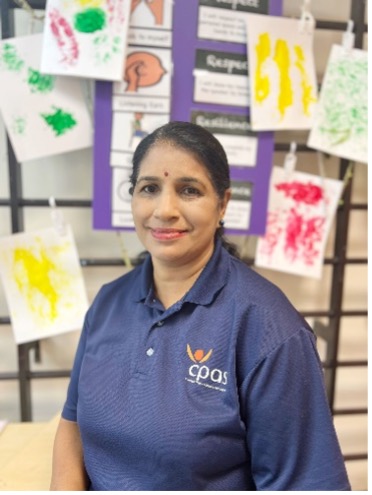When schools shifted into Full Home-Based Learning (HBL) in April, I had only been teaching for 3 months. As a new teacher, I was initially anxious. Unlike the more senior teachers, I didn’t have a large bank of resources to draw from. I had only taught in the traditional classroom, and this represented a huge shift from everything I had learnt in my new school environment thus far. My immediate concern was that I would not see my students for a long stretch of time – how, then, would I be an effective teacher?
Surprisingly, HBL nudged me to think of new ways to engage my students – such that even after going back to school in June, I continued to use different online platforms to complement what we were doing in class.
My goal? To help my students see the use of the English Language outside the classroom context.
Writing for Joy
In trying out new platforms and projects, I was surprised by what my students were capable of when they were given a chance to pursue their interests.
When teaching narrative writing to my Secondary 2 class in June, I found that quite a few of the students demonstrated a flair for writing. To stretch their learning, I designed an extension task for the aspiring writers – to create an online magazine to showcase their best stories.
Ten students signed up for this optional writing challenge. I gave feedback on their drafts online, and they refined their work in their own time. I also introduced them to an online publishing application where they could select suitable layouts and images to accompany their work.
Actually, I barely had to help them – they were eager to explore and were soon proposing different looks for their magazine.
Three students volunteered to be the editors of the magazine. With a bit of guidance, they soon took over the production process, proofreading their friends’ writing and putting the pieces together. They looked into every detail of the publication, which was named after their class, and the spirit with which they undertook this project.
.jpg)
Besides the attractive visuals, the stories themselves were also a joy. The students wrote on a range of unexpected topics – from a diary entry by the Phantom in Phantom of the Opera to a humorous take on time travel. They also made use of the narrative writing techniques that we learnt in class.
When the publication was shared with their classmates, they spontaneously applauded the writers. They were impressed with the efforts of the writers and some told me that reading the stories by their peers inspired them to write their own.
More importantly, they saw writing as more than their graded assessments.
Listening to empathise
Technology also made it easier for us to bring different media into the lessons. During the Circuit Breaker, quite a few local theatre productions were available for free online. This inspired me to organise a virtual screening of a play for my Secondary 1 class.
As their form teacher and English teacher, I had observed the behaviour of some students and realised that at that age, they are sometimes thoughtless with their words. To help them understand the importance of empathy, I got them to watch a local play that explored the meaning of compassion.
Over the video-conferencing platform, I saw that the students were visibly engrossed, and some were so moved that they teared. Afterwards, we discussed what it means to empathise with others. The students talked about the emotional impact of the play, and raised examples of how the words used reflected the characters’ beliefs and attitudes towards one another. They were applying what they learnt in English class!
Exchanging opinions
Technology was also invaluable in encouraging participation. While teaching argumentative writing, I used an online debate platform for my Secondary 2s to practise crafting sound arguments and rebuttals. Similar to a forum, the platform allowed students to write down their opinions and comment on points being made by their classmates.
To encourage students of different abilities to participate, I assigned roles such that those who were more eloquent acted as moderators. They helped to point out fallacies and suggest how their classmates’ arguments could be strengthened. This ensured that the discussion was not “hogged” by those who were more confident, and allowed everyone to contribute.
Could we have conducted a real debate in class? Yes, but it would have been challenging to keep track of everyone’s points and give them feedback in a live debate. Furthermore, the online platform is not unlike how people interact on forums and social media today – and I believe teaching them to comment sensibly in such situations is no less important than getting them to write a good essay.
Teaching beyond the classroom
It was definitely an unusual first year as a teacher for me because of COVID-19, but it helped me learn a lot too.
.jpg)
I learnt not just about technology, but also about my teaching philosophy. I have always believed in teaching students about the varied and creative use of language in the real world beyond just guiding them to write grammatically and answer comprehension questions. This experience helped me realise that this does not always have to happen in a face-to-face setting. It was truly a joy to see my students take charge of their learning in these varied settings. I will continue to explore using online self-directed learning tasks to complement my classroom lessons as I believe these are opportunities for my students to apply what they learnt beyond the classroom.
Lastly, I also learnt that being a beginning teacher (or beginning anything) is not a handicap. Experience will come with time, but the willingness to explore new platforms and tools is always a great asset. And that’s something I hope my students picked up from me as well.



.jpg)
.jpg)

.jpg)